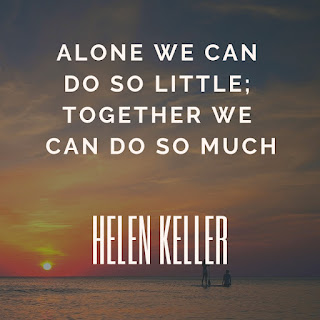National Aphasia Synergy (NAS) is a new nonprofit organization that promotes an aphasia community led by peers.
Synergy organization was founded by and will be guided by people with aphasia (PWA). This is life participation at its core!
There are over 2 million people in the United States living with aphasia. That’s more than twice as many as those living with Parkinson’s disease and 60 times more than ALS, but less than 14% of the general population knows what aphasia is - until it happens to them or a loved one.
“Aphasia is a tough blow. It interferes with communication, social connection, psychological well-being.” (Katarina Haley, PhD, CCC-SLP, UNC Chapel Hill)
Aphasia affects a large part of the population, and the incidence of depression after aphasia is estimated to be 60% over the first year. Sadly, support for aphasia has been very thin.
NAS was developed to help support people with aphasia. We can best serve those with similar needs by networking local aphasia groups and individuals with aphasia in order to share ideas, resources, and support in a central place. NAS website will be available to aphasia groups across the country as well as individuals. Our strength is sharing the stories of wins and challenges.
NAS Mission Statement
NAS is a peer-led community of people with aphasia driven to:
• educate people with aphasia (PWA)
• empower PWA to use technology to improve communication skills
• promote peer-befriending with new or struggling PWA
• develop a national PWA community
• encourage optimism and a positive outlook in PWA
NAS Vision Statement
Our vision is that one day, the population of the United States will have a greater understanding of aphasia, and as a result, all people with aphasia will be treated with respect and kindness.
NAS will be a national community serving people with aphasia to end the isolation.
Our website is intended to be a rich source for people with aphasia.
Our plan is for people with aphasia to help other people with aphasia thrive.
The Synergy organization will offer PWA:
• strategies
• tips and tools
• information and support for hobbies, volunteer opportunities, or jobs
• book and article resources, including works authored by people with aphasia
• stories about people with aphasia and an opportunity to share stories
• discussions and chats
• resources for people with aphasia
• links to newspapers and other media across the nation
We need you to help us grow. Every little bit will help us to provide a strong online presence for the aphasia community. We need your help to make our vision a reality.
National Aphasia Synergy Inc is a 501(c)(3) tax exempt organization with a Tax ID of 87-3330394. Contributions are tax deductible to the extent allowed by law and do not represent payment for goods or services received.
NAS Board of Directors
• Trish Hambridge (PWA) – President - Apple - Dunedin, Florida
• Amy Walters (PWA) – V.P. – Regulatory & Clinical Affairs - Newport Beach, California
• Helen Ansted – Secretary/Treasurer – Finance - San Jose, California
• Kait Moses M.A., CCC-SLP - U of Michigan Aphasia Program – Plymouth, Michigan
• Bruce Farrell (PWA) - Director of Proposals for Plante Moran – Detroit, Michigan
* Donation - Download and mail our form: here















